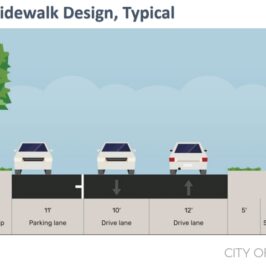posted August 31, 2023 – 3:13 pm
2022 Data Now Available
Interested in seeing a clearer picture of housing, safety, health, education and the overall wellbeing of the City of Madison? New data is now available on the City of Madison’s Neighborhood Indicators Project (NIP) website. NIP is tracking system designed to follow communities’ wellness over time, aiming to support better understanding of the changes within Madison communities. The use of indicators along with local knowledge and other informational resources can help all areas of Madison thrive.
NIP provides geographically detailed data for over 50 variables within seven topic areas. This includes measures such as total population, number of dwelling units and subsidized rental units, high mobility students and so on. It is supported by various data sources that range from city, county, state and federal data sources.
NIP is a valuable tool for a wide range of entities, such as community-based organizations, non-profits, the business community, and governmental officials and staff. NIP data can help identify vulnerable communities that would benefit most from community support and resources.
The 2022 Edition includes a significant improvement. Data is now provided at two commonly used Census geographies – Tracts and Block Groups. Using Tracts and Blocks Groups makes it easier to compare results for areas across Madison, since these geographies generally contain a similar number of residential units. Additionally, the NIP’s local data can be considered within the context of other data reported at the Tract and Block Group geography.
Interested in learning more about NIP data and the NIP website? The City of Madison Planning Division offers free workshops to local organizations. Please contact Urvashi Martin at umartin@cityofmadison.com for more details.
NIP is a partnership with the University of Wisconsin-Madison’s Applied Population Lab .
Contacts
- Urvashi Martin, (608) 267-8735, umartin@cityofmadison.com







